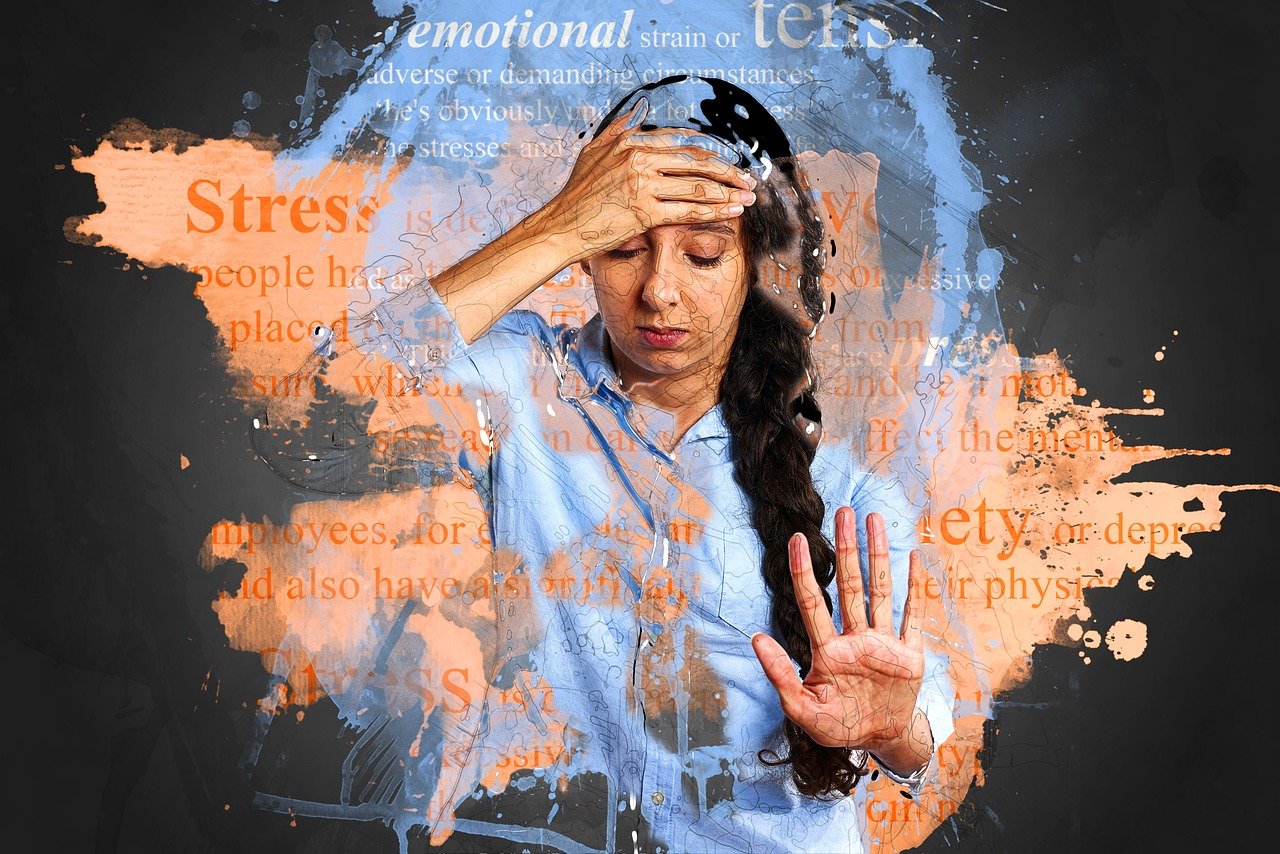Depression is a state of depressed mood on a daily basis for a minimum duration of 2 weeks.
- It is characterized by sadness, indifference, apathy, or irritability and changes in sleep patterns, appetite, and weight.

Criteria for a Major Depressive Episode:
A) If five or more of the following symptoms are present during the same 2 week period and represent a change from previous functioning:
- Depressed mood most of the day, nearly everyday, as indicated by either subjective report. (feels hopeless, sad, empty) or observation made by others.
- Marked diminished interest or pleasure in almost all activities throughout the day, nearly everyday.
- Significant weight loss when not dieting or weight gain or decrease or increase of appetite almost everyday of more than 5 % of body weight a month.
- Insomnia or hypersomnia almost everyday.
- Psychomotor agitation or retardation almost everyday, usually observed by others.
- Fatigue or loss of energy almost everyday.
- Feelings of worthlessness or excessive or inappropriate guilt which may be delusional, nearly everyday.
- Diminished ability to think or concentrate, or indecisiveness, nearly everyday, either by subjective account or observed by others.
- Recurrent thought of death, recurrent suicidal ideation without a specific plan, or a suicide attempt, or a specific plan to commit suicide.
B) The symptoms cause clinically significant distress or any impairment in social, occupational, or other important areas of functioning:
C) The episode is not attributable to the physiological effects of a substance or another medical condition.
D) The occurrence of major depressive episode not explained by seasonal affective disorder, schizophrenia or any other psychotic disorders.
E) No manic episode ( Sustained period of abnormally irritable mood) or hypomanic ( State of increased energy , exhilaration and irritability ) episode.
Clinical manifestations for Depression:
- According to studies, approximately 15% of the population experience a major depressive episode at some point of life
- When a patient suspects the presence of a major depressive episode, the initial task is to determine whether it represents unipolar or bipolar related issues or use of substance abuse.
- Physicians should also assess the risk of suicide by specific and direct questioning as people are often reluctant to verbalize such thoughts without prompting.
- If the patient has past of history suicidal attempts, profound hopelessness, medical illness or any substance abuse, ,immediate care, by referring the patient to the mental health specialist for further evaluation.
- Patient should specifically probe each of these areas in an empathic and hopeful manner, being sensitive to denial, and possible minimization of distress.
- Suicidal risk usually increases with the presence of anxiety, agitation and panic.
- Unipolar depressive disorders usually begin in early adulthood and recur episodically over a period of time.
- 50-60% of people who have already had episodes have 1 or 2 recurrences. Multiple recurrences can lead to be a little fatal.
Other symptoms of Depression:
- In elderly patients, depressive symptoms, associated with cognitive deficits mimicking dementia known as pseudodementia.
- A seasonal pattern of depression, called seasonal affective disorder, may manifest with onset and remission of episodes at predictable times of the year.
- This episode is more common in women.
Depression in association with medical illness:
- Depression in context of a medical illness is difficult to evaluate.
- Antihypertensive drugs, anticholesterolemic agents and antiarrhythmic agents are common triggers of depressive symptoms.
- In cardiac patients, 20 to 30% of the population suffer from depressive disorders with higher concentrations experience depressive symptomatology when self-reporting scales are used.
- Simultaneously, depressive symptoms like unstable angina, cardiac bypass surgery and myocardial infarction affect a large group of population.
- In cancer patients, pancreatic cancers are considered to be one of the major reasons for 40-50% of depression.
- Psychotherapeutic approaches, particularly group therapy have shown promises to help patients with short term depression, anxiety and pain symptoms.
- In neurologic disorders, depression is frequently observed particularly Cerebrovascular disorders, Parkinson’s disease, Dementia, Multiple Sclerosis and Traumatic brain injury.
- All classes of antidepressant agents are effective against depressions.
- In diabetic patients, depression is seen to be present in 8 to 27% , with the severity of the mood state corelating with the level of hyperglycemia and the presence of diabetic complications.
Other causes:
- Additionally, in hypothyroidism, features of depression are frequently associated with symptoms of depressed mood and memory impairment.
- Patients with subclinical hypothyroidism can also experience symptoms of depression and cognitive difficulty that respond to thyroid replacement.
Treatment:
- Medical Management of Major Depressive Disorder:
- Determine whether there is a history of a good response to a medication in the patient or a first-degree relative. If yes, then consider treatment with this agent if compatible with considerations.
- Evaluate patient characteristics and match to drug.
- Consider health status, side effects profile, convenience, patient preference, drug interaction risk, suicidal risk, and medication compliance history.
- Begin new medication at 1/2 to 1/2 target dose if the drug is a TCA ( Tricyclic antidepressant ), Bupropion, Venlafaxine or Mirtazapine or full dose as tolerated if drug is an SSRI.
- If side effects prevail over the use of medication, then evaluate the possibility of tolerance and consider temporary decrease in dose or adjunctive treatment.
- If the side effects continue in spite of measures, taper the drug over 1 week and initiate a new trial.
- Consider potential drug interactions in choice.
- Evaluate the response after 6 weeks at target dose. If the response is inadequate, then increase the dose in stepwise fashion as tolerated.
- If there’s inadequate response after maximal dose , consider tapering and replacing with new drug vs adjunctive treatment.
- Provided the drug is a TCA, obtain plasma levels to guide further treatment.
Follow us for more such content here
Please refer this book for a detailed description of the disease : Harrisons book of internal medicine

